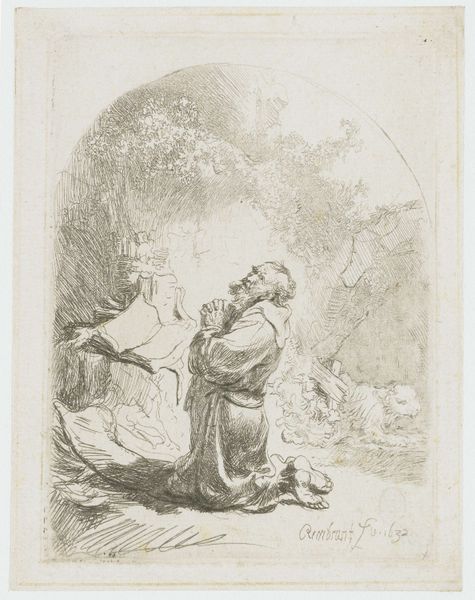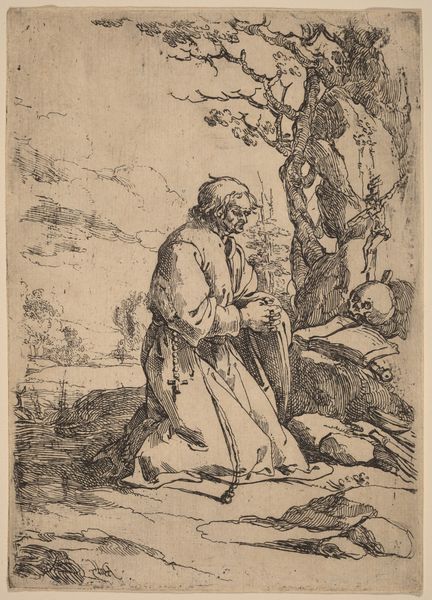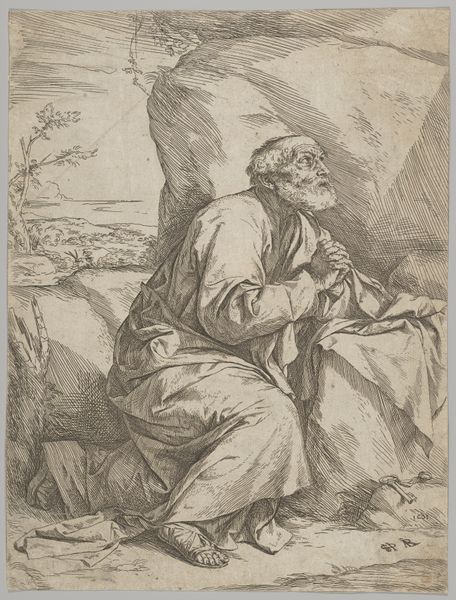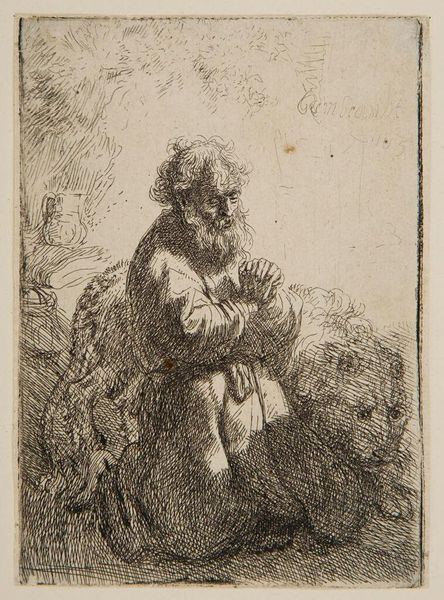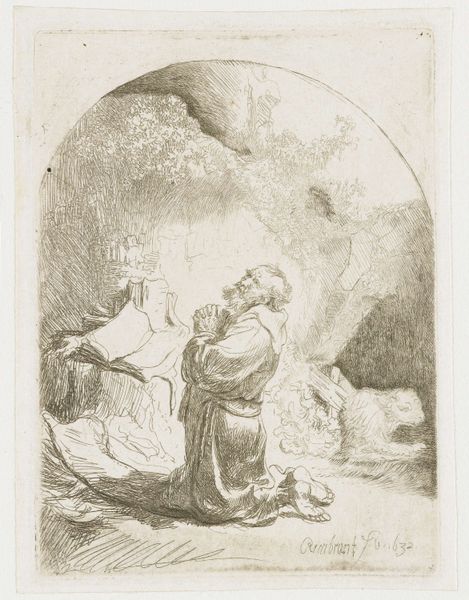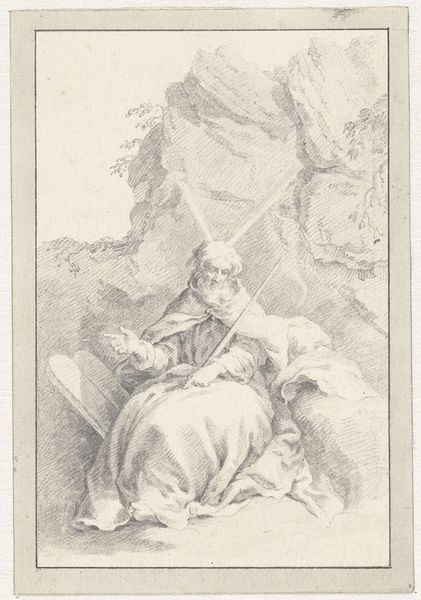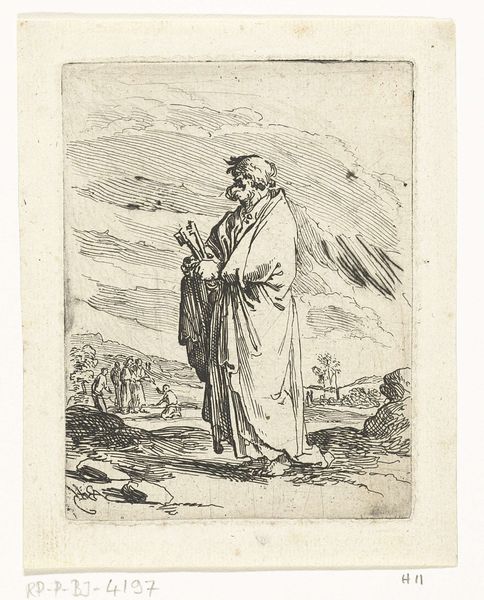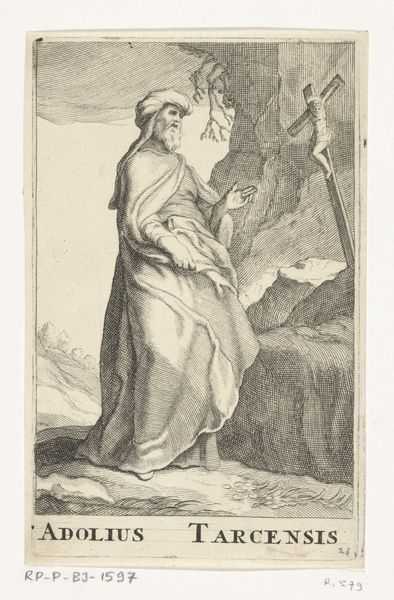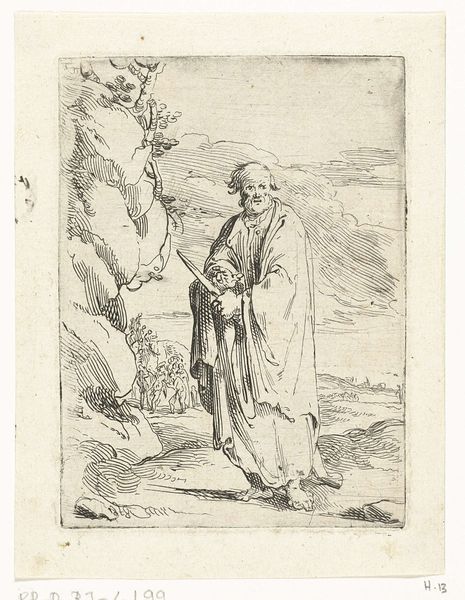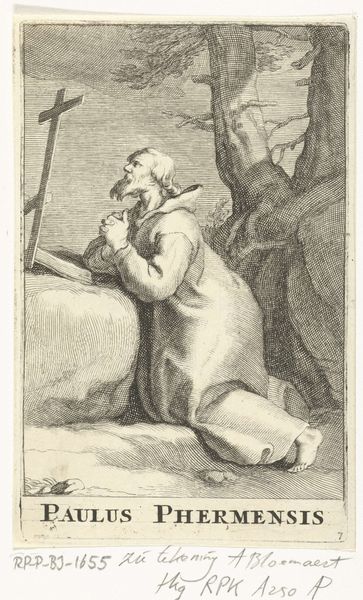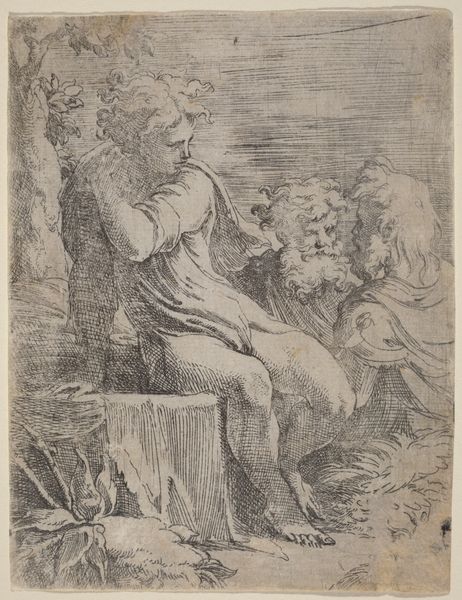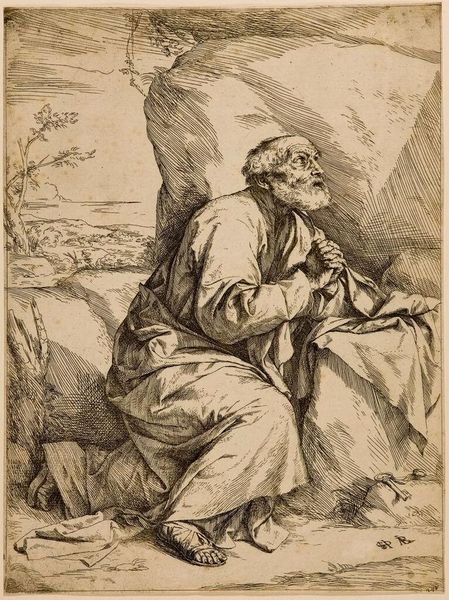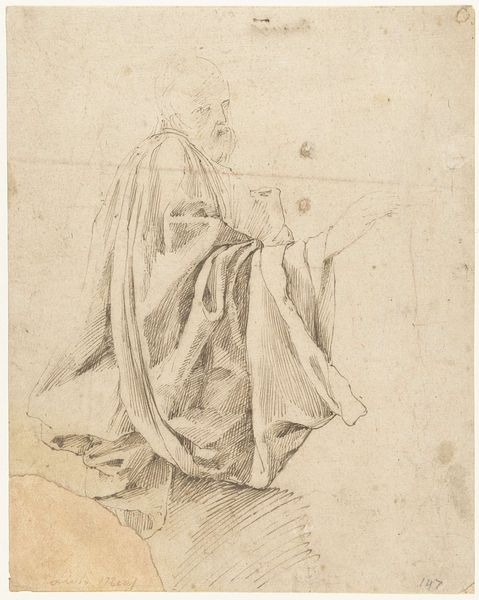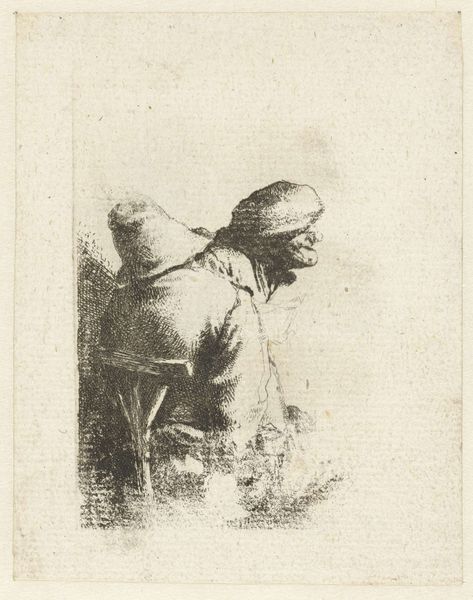
drawing, etching, ink
#
portrait
#
drawing
#
light pencil work
#
quirky sketch
#
baroque
#
pen sketch
#
etching
#
pencil sketch
#
figuration
#
personal sketchbook
#
ink
#
sketchwork
#
ink drawing experimentation
#
pen-ink sketch
#
sketchbook drawing
#
sketchbook art
Dimensions: height 122 mm, width 90 mm
Copyright: Rijks Museum: Open Domain
Jan Lievens created this etching, *Hermit with Crucifix*, using an intricate process involving metal, acid, and ink. The image begins as a solid copper plate, on which Lievens would have drawn his composition using a sharp needle-like tool to expose the metal. The plate is then submerged in acid, which bites into the drawn lines, creating grooves that hold ink. The resulting print showcases the tactile quality of the etched lines, each varying in depth and thickness, giving depth to the image. Look closely and you can see how the density of the lines creates the illusion of light and shadow, defining the hermit's form against the stark background. Etching as a process speaks to a moment in the history of art production when reproducibility began to gain importance. The method requires skilled labor and specialized knowledge, yet allows for distribution of imagery. This print thus exists at the intersection of artistic skill, labor, and the burgeoning market for art in the 17th century. By understanding the labor and materials involved, we appreciate not only the artistic skill, but also the changing context of artmaking during the Dutch Golden Age.
Comments
No comments
Be the first to comment and join the conversation on the ultimate creative platform.
